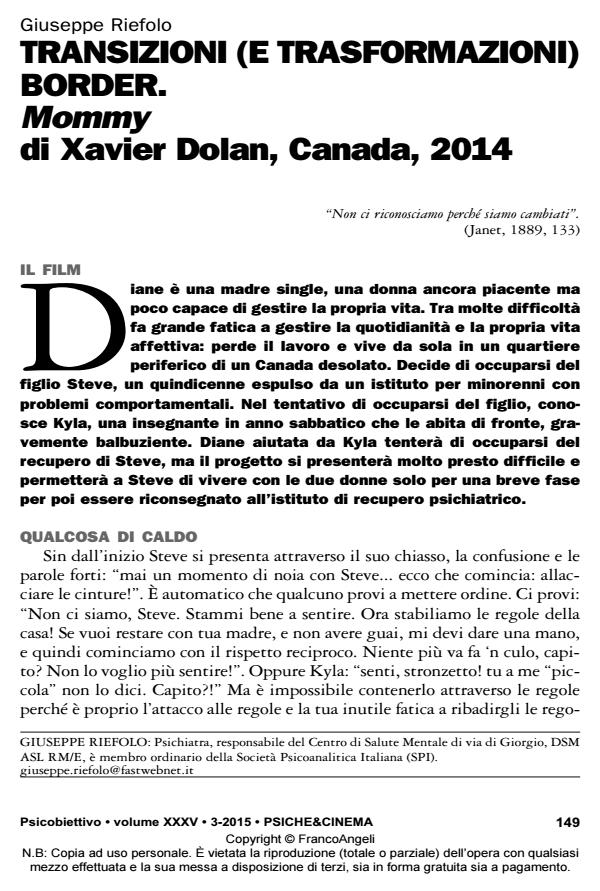The unsteady voice of the border. Mommy by Xavier Dolan, Canada, 2014
Journal title PSICOBIETTIVO
Author/s Giuseppe Riefolo
Publishing Year 2016 Issue 2015/3
Language Italian Pages 11 P. 149-159 File size 104 KB
DOI 10.3280/PSOB2015-003011
DOI is like a bar code for intellectual property: to have more infomation
click here
Below, you can see the article first page
If you want to buy this article in PDF format, you can do it, following the instructions to buy download credits

FrancoAngeli is member of Publishers International Linking Association, Inc (PILA), a not-for-profit association which run the CrossRef service enabling links to and from online scholarly content.
The movie Mommy (Xavier Dolan, 2014) allows many questions regarding the therapy of borderline patients. The problem suggested by these patients concerns the clear defensive dissociation between concrete objects and emotions. All their pathological behavior focuses on the need to cover up and deny the clear need to experiencing emotions. This experience is continuously sought, but at the same time, feared because it coincides with the recognition of the limits and frailties that such patients can not identify. Therefore Kyla, who is stuttering, evokes the attempt of the border to present his own voice, ever covered by the noise. The exasperated grandiosity that border propose continuously covers the right of these patients to be able to present their wounds that, in fact, allows the painful experience to show their authentic shame. But when Steve shames he would be recognized, while he finds indifference. Finally, the film suggests that the pathways of care of these patients have very different outcomes, usually limited to phases more or less long and always leaves paths dramatically suspended or interrupted.
Keywords: Borderline; Cinema and Psychoanalysis; Adolescence; Dissociation; Dissociative Process; Shame.
Giuseppe Riefolo, Transizioni (e trasformazioni) border. Mommy di Xavier Dolan, Canada, 2014 in "PSICOBIETTIVO" 3/2015, pp 149-159, DOI: 10.3280/PSOB2015-003011